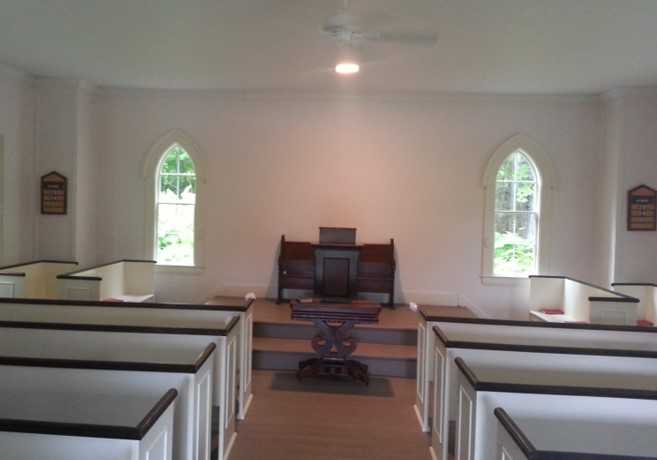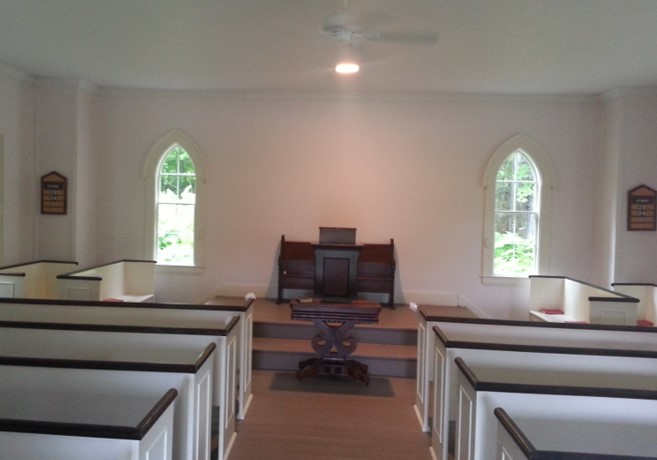This passage from the Gospel of Mark is found in the revised common lectionary provided by the Vanderbilt Divinity Library. The text is from the NRSV.
You can hear a recording of the reading here.

“And he called them to him, and spoke to them in parables…”
When reading the Gospels aloud, we invite the audience to encounter the human experience of the divine as recounted in the Gospels. We can leave interpretation and meaning to members of the clergy and other scholars. What we are most interested in is this experience.
In this reading, I think it’s clear that Jesus experiences the world in way that’s different from the way everyone else experiences the world. He behaves differently. He touches and heals the sick, embraces those who’ve been marginalized, and challenges earthly authority with difficult questions.) He speaks differently (in parables) and reacts differently to the hostility. He responds to threats with invitations.
Jesus is often imagined and portrayed as beatifically disengaged. Unearthly. But in this reading, he’s clearly engaged. He invites everyone to see and experience the world in a new way; to see and recognize the power of the holy spirit at work in the world. He asks the scribes to think about what it is they are really saying – and the jeopardy they are placing themselves in — when they attempt to dismiss this power as the unclean work of demons.
Text Analysis
As readers, we begin with text analysis. Read the text aloud to yourself. We’re not attempting an exegesis of the text. We’re allowing ourselves, and inviting the audience, to hear and see through and beyond the printed words on a page to the events and experiences suggested by those words. Here are some things that stand out to me:
- In this reading there’s an obvious tension between the private life of Jesus, his family and the apostles, and the public. Initially, Jesus’ intimate relationship with his family and his newly appointed disciples stands in sharp contrast to the crowd. The crowd gathering outside seems restive, anxious, mistrustful and even threatening. His family is worried for him and protective. Their meal has been interrupted. They try to “restrain” him and rescue him from the crowd.
- The crowd seems to be divided between those who accuse Jesus attempt to incite the crowd against him, and those who are ready to sit at the feet of Jesus and listen. It’s the crowed that seems to be divided against itself. Jesus doesn’t flee and seek the refuge of the home. Rather, he welcomes the crowd and calls them to him. Jesus is leaving the security of his nuclear family and friends and engaging directly with his larger family of man.
- The crowd accuses Jesus three times of blasphemy and in doing so unwittingly commits blasphemy itself against the Holy Spirit:
- Jesus has gone out of his mind
- Jesus “has Beelzebul”
- Jesus has an unclean spirit
But Jesus doesn’t argue or counter sue. He calls them to him and speaks to them in parables. He reminds them that all blasphemy can be forgiven but that it’s hard to receive and accept forgiveness for blasphemy against the Hold Spirit.
- Jesus doesn’t engage in logical argument. He speaks in parables. How can this be the work demons? And who is my mother and brother and sister? “Whoever does the will of God is my brother and sister and mother.” There is an emotional appeal in his words that reaches far beyond simple reason.
A reader is not offering an interpretation of the text. What the reader is looking for is subtext. The reader wants to get at what’s happening above, below, around and throughout the text. The words on the page are simply clues. The reader is attempting to fully realize the human experiences that are presented in the text; to recreate those same conditions here and now for the audience to experience.
Reading this passage aloud
This is a dynamic and emotionally charged encounter between Jesus, his family, his disciples, scribes (authorities) and the crowd. The temptation is to read passages from scripture as ritual; a dispassionate sequence of meaningful events. But this passage is really the painting of one continuous and swelling scene where all the characters are in motion and everyone around Jesus is in emotional turmoil.
There are public voices and private voices. Calling out of and to the crowd is in a public voice. Accusations are sharp and hurled like stones. Familial voices are private voices. They are patient and caring.
The “house divided” passage may be one of the best political speeches ever conceived and delivered. It’s being addressed to the crowd in full voice for all to hear. So, take a deep breath and make this a teaching moment for all. Speak to the crowd. The crowd is agitated to start, things are moving quickly and a bit chaotically, but by the end of these few verses we find members of the crowd sitting attentively around him. The scene shifts from loud and rapid and swirling to more settled, peaceful and considerate. It’s a remarkable transformation in a short period of time from the very public to the intimate.
That his mother and brothers and sisters are asking for him, is deeply personal and intimate. There’s warmth and perhaps a touch of humor in his voice as he looks at those around him and responds that his family is right here. And those at his feet are asking for him too. What’s he to do?
Here is a moment of perfection. It’s not a rejection of his nuclear family, it’s the recognition and acknowledgement that we’re all his family. This is a private voice. We’re all right here, right now. There’s a wonderful sense of fulfillment. My family is gathered here around me. It’s disruptive – this redefinition and experience of family — and yet perfectly harmonious at the same time.
What started out as a fractious and dangerous and very public situation has become at least momentarily domestic and peaceful. That’s the trajectory and energy of the reading.
And when you read aloud to a congregation, you have an actual crowd right in front of you. So, take a deep breath and give them an experience they are waiting for.

